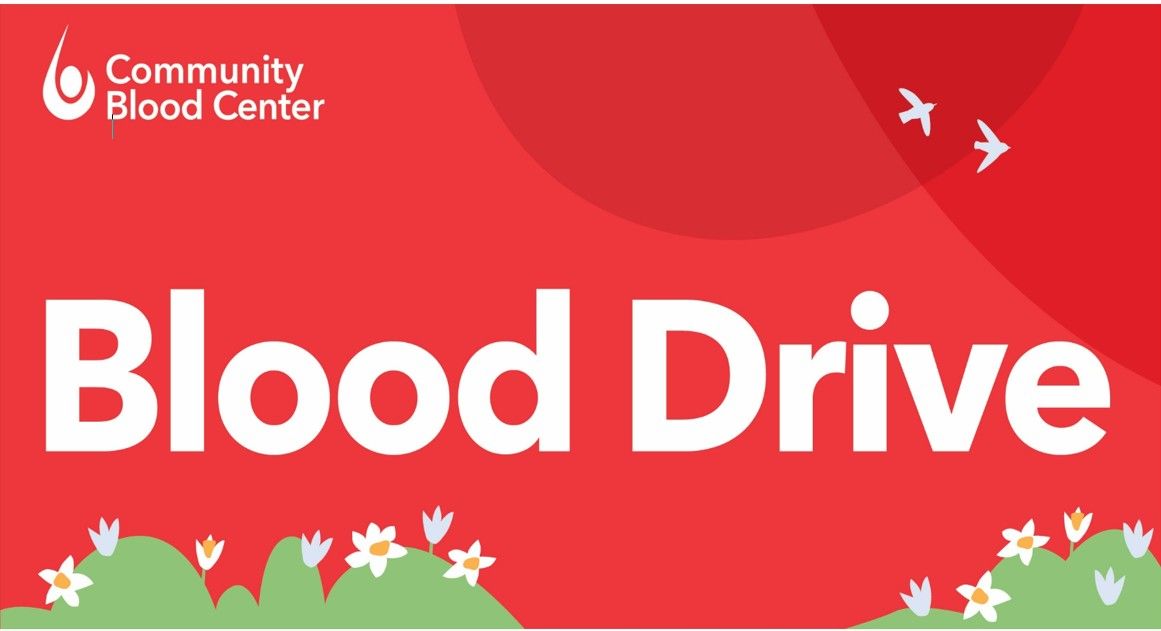|
Blood Drive
Community Blood Center Blood Drive
Zion Lutheran Church
Monday, April 28th
2:00 PM - 6:00 PM
Fellowship Hall
23167 Topeka St.
Vassar, KS 66543
Sign up at savealifenow.org/group and use
group code
EI5H. For additional details, contact Pastor Jim Kirschenmann at
(785) 828-4482 or
Pastor@ZionVassar.org.
For full eligibility requirements and COVID-19 information, visit https://savealife.org/eligibility
Thank You for Considering Your Blood Donation
You’ve made the decision to donate blood – that’s fantastic! But before you proceed, there are a few things that you must keep in mind prior to blood donation.
When you Donate blood, your body loses some of its iron stores. Iron is essential for your blood cells to carry oxygen around your body and keep you healthy, Therefore it’s important to replace those stores as quickly as possible.
It is recommended that you eat iron-rich food like lean meats, whole grains or green leafy vegetables within six hours after donating blood.
Benefits of Blood Donation
Blood donation is one of the most noble acts that a person can do. It is a way to help others and give back to society. The blood that is donated is used to help people with diseases and injuries. There are many reasons why blood donation is so important. Aside from saving a person’s life it also has obvious benefits for the person donating blood as well.
Perhaps you are thinking about donating blood but are unsure of how it will affect your body. Or perhaps you’ve donated in the past and are wondering about the effects frequent donation might have on you. In any case, some of the effects might surprise you. We sought the advice of medical experts to determine some of the most significant benefits of blood donation which are as follows:
- Can lower dangerous iron stores
- Could reduce your chance of having a heart attack
- May lower your chance of getting cancer(quote study.)
- Can support the health of your liver
- Is beneficial for mental health
Tips For Blood Donation
Donating blood is a simple way of helping people with serious medical conditions or life threatening injuries. However before you donate, ensure you have eaten and drunk enough; this helps reduce your risk of feeling tired or anemic afterward.
Here are some tips:
- First, eat a healthy meal before donating.
- Keep yourself hydrated after donation for at least several days.
- Do not exert or strain yourself for 24 hours after donating blood.
Food to Eat and Drink Before Donating Blood
If you want to donate blood, make sure to stay hydrated before and after your appointment. It’s important to stay hydrated because about half of your blood is made of water and you’ll also want to increase your iron intake before and after donating, as already discussed above.
You lose iron when you donate, so this can cause symptoms of fatigue if it’s not replaced. So, let us have a look at the Essential Vitamins and minerals a person must consume before donating blood.
1. Iron
Iron is an essential element to produce Hemoglobin, the substance that carries oxygen from your lungs to the rest of your body. If you don’t have enough iron in your diet or stored away in case of emergencies (like donating blood), a lack of Hemoglobin can cause serious problems.
If you have a low level of iron stored in your body, you have a higher likelihood of suffering from iron deficiency anemia. This means you are at risk for fatigue, shortness of breath, and decreased endurance.
You can prevent this disease by eating iron-rich foods and taking iron supplements, but it’s important to know about the types of iron. Following are two different types of iron found in foods:
A. Heme Iron
Heme iron is the form of iron your body needs to build red blood cells. Foods rich in heme iron include:
- Meats: e.g. Pork, Veal, Beef, Lamb, Ham, and Dried Beef.
- Poultry: Such as Chicken and Turkey.
- Fish and Shellfish: e.g. Tuna, Haddock, Shrimp, Clams, and Mackerel.
- Organs e.g. Liver.
- Eggs
B. Non-Heme Iron
Non-Heme iron is found in plant-based foods. The body does not as easily absorb non-heme iron as heme iron, which is found in animal products.
- Vegetables: Broccoli, Spinach, Sweet Potatoes, Peas, Beet Greens
- Bread And Cereals: Wheat Bran Cereals, Cornmeal, Oats, Enriched White Bread, Enriched Cereal, Whole-Wheat Bread, Enriched Pasta, And Enriched Rice.
- Fruits: Strawberries, Watermelon, Prune Juice, Dried Apricots, Dried Peaches, Raisins, Dates, Figs (Dried)
- Beans: Tofu (Soybeans); Kidney Beans; Garbanzo Beans, White Beans, Dried Peas, Dried Beans, Lentils
- Eggs
Excess Iron intake can also be lethal thus requiring a balanced consumption of both food types.
2. Water
Blood donation is one of the best deeds to assist anyone in a time of need, as nothing is more important than health. But hold on! Before you head out the door, you should know how much water to drink.
When you donate blood, it’s important to stay hydrated because your body loses fluids when you donate. This can lead to dizziness and low blood pressure, so it’s important to stay properly hydrated before and after donating blood.
It is recommended by the American Red Cross to drink 16 ounces of water before donating blood, which is about two cups. You can also drink other non-alcoholic beverages such as juice or sports drinks. These fluids will help keep your body healthy during the donation process and make sure your donation goes smoothly and safely!
3. Vitamin C
One of the most significant vitamins for your body is Vitamin C. It helps you absorb iron from plant-based sources, and it can help reduce the risk of heart disease and cancer.
A healthy diet is key for receiving all the vitamins and minerals you need to stay healthy. The best way to intake Vitamin C is in tropical fruits, such as oranges and tangerines. Watercress, green pepper, and wild berries are also excellent sources of vitamin C.
Best Food to Eat After Blood Donation?
Blood donation has a variety of health benefits, however it also has some adverse effects on your body. It’s important to know what you can eat after donating blood to make sure you stay active and healthy.
Food After Blood Donation:
First, remember that it’s important to intake lots of water after donating blood. Your body will be losing water through the process of donating, so it’s important that you replace what you’ve lost with lots of fluid. Make sure to have at least 2 cups of water before going in for your donation as well, since dehydration can lead to dizziness or fainting.
Second, try not to eat too much fat before donating blood because this could cause an increase in fat levels in your body, making it more difficult to screen for infection and disease. You must opt for foods high in carbohydrates, like whole grains or fruits and vegetables; these will help replenish your energy stores without raising fat levels too much.
Thirdly, try not eating anything too spicy or acidic right after giving blood because these foods can irritate the stomach lining and cause nausea or indigestion, making it harder for you to get back into it!
Moreover, get some rest! You will surely feel tired and drained after blood donation, but this is normal! Take a nap or go to bed early, and make sure to get enough rest throughout the next few days as well so that your body can recover quickly.
Zion Lutheran Church will have Snacks and Water available for you, as well as bread and meats along with other condiments and "fixin's" for building your own sandwiches. We encourage you to spend some time FOLLOWING your generous donation of blood to refresh and regenerate a bit and visit with us. We want to get to know you... So stop by and join us as we make this drive available!
Powered by BoxCast Sites
Member of the Lutheran Church - Missouri Synod 501(c)(3) US



